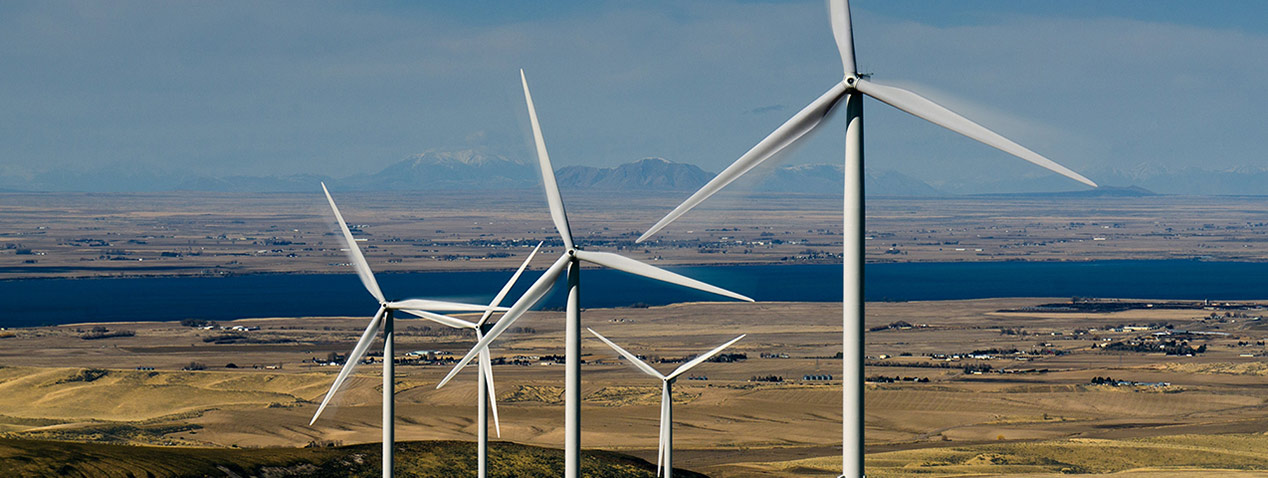Save the Planet Through Policy
Environment, Sustainability and Policy Bachelor's Program

Core Requirements (9 credits)
Core courses serve as an introduction to contemporary issues in environmental and sustainability practices and policies. You will build a strong foundation in environmental science, the humanities and data analysis.
Science-Policy Integration (3 credits)
Understanding fundamental issues relating to the evolution and implementation of environmental and sustainability policies are an important element of the ESP program. As a major, you will take one course in this area.
Electives (12 credits)
Choose two electives in environmental science and two from environmental studies or humanities. With advisor approval, you may apply your base major capstone course, study abroad, internship or research experiences to fulfill one elective.
ESP Capstone Seminar (3 credits)
Investigate a sustainability-related topic employing perspectives from the natural sciences, social sciences and humanities through this capstone course.
Related Natural Science Programs
Sample Core Courses
ESP majors will choose one course from each of the three core categories listed below. These foundational courses will help you better understand the complexity that exists within the fields of sustainability and policy. Please note: these are a small sample of the courses available to choose from. For more information on this program, see the Course Catalog for complete details on the bachelor of arts and bachelor of science degree programs.
Environmental Sciences
Earth Science (EAR 105)
Discover processes that shape Earth and affect humans. This course also covers Earth structure, plate tectonics, geologic time and surficial processes.
Ecology and Evolution (BIO 345)
This course is a survey of modern topics in ecology and evolutionary biology, including: evolution, phylogenetics, animal behavior, population ecology, community ecology and ecosystems.
Global Environmental Change (GEO 215)
You will focus on physical processes and patterns of environmental change, changes occurring as a result of human activities and the social consequences of environmental change.
Environmental Studies and Humanities
Economic Ideas and Issues (ECN 203)
Foundations of modern Western economic thought are explored through this course. You will learn how this economic model is applied to current issues facing society.
Environment and Society (GEO 103)
Explore the relationship between society and the environment. Topics covered include natural resource use, climate change politics, food and agriculture, energy, water and sustainability.
Religion, Spirituality and Nature (REL 253)
This course is an examination of American naturalists and nature religionists for claims about nature’s value, sacrality and fragility. It also deals with current issues and concerns about climate change and environmental activism.
Data Analysis
Numerical Methods in Geosciences (EAR 402)
This course explores numerical methods and data analysis in geosciences using MATLAB. Topics will include basic statistics for univariate and bivariate datasets.
Applications of GIS in the Earth Sciences (EAR 410)
You will be introduced to the many uses of image and topographic data within a geographic information system (GIS) to extract information relevant to the study of the Earth.
Quantitative Methods for the Social Sciences (MAX 201)
Develop skills necessary to analyze data and evaluate research including research design, sampling design, descriptive and inferential statistics, data sources for social science, constructing data sets, reading and constructing tables and charts.
Advanced Coursework
Students are required to take one 3-credit, 300-level integrative science-policy course and four 3-credit electives. Two electives must be from the environmental sciences, and two must be from environmental studies or humanities. Sample courses are listed below, but this is not an exhaustive list of options.
Science-Policy Integration Course Examples
Sustainability Science and Policy (GEO 360 or PSC 360)
Pursuing Sustainability Policy (GEO 434 or PSC 434)
Technology, Politics and Environment (PSC 318)
Advanced technology is a focal point of governmental and political conflict in the United States and other nations. This course explores the interplay of technology and politics as a struggle for control as it relates to the environment.
Sample Elective Courses
Geography of Oil (GEO 340)
The topic of oil is used to explore the concerns of human geography with society, space and the natural environment. By learning about oil, you will cover themes and concepts important to environmental, political, cultural, economic and urban geography.
Medical Anthropology in Ecological Perspective (ANT 469)
This course looks at the biological and cultural factors in disease causation, diagnosis and treatment in Western and non-Western societies.
Sustainability in Civil and Environmental Systems (CIE 274)
You will be introduced to concepts applied to natural and built environments. The course focuses on several key issues and looks at basic principles for sustainable civil and environmental engineering design and decision making.

I am Maxwell.
I knew that I was interested in going into environmental work, but I was missing that natural sciences foundation. ESP has given me the qualitative and quantitative foundation that I needed...The faculty members were amazing in encouraging me and helping me make it all work.”
Lauren McNamara ’21 B.A. / ’22 M.P.A.
Undergraduate triple major: international relations; economics; environment, sustainability and policy